
Elizabeth Warren, the Massachusetts senator steadily rising in the polls, was the primary target as Democratic candidates clashed in Ohio on Tuesday evening at a critical juncture in the race to pick a nominee for the 2020 presidential election.
The three-hour debate, which began with a focus on the impeachment inquiry into U.S. President Donald Trump, was dominated by attacks on Warren and strong performances from Pete Buttigieg and Amy Klobuchar in the middle stages, and concluded with a clash among the three leading candidates.
Here are five takeaways:
1. Moderates hammer Warren
Warren's campaign is flying, but questions persist over whether her positions are too far to the left to make her electable on the national stage. Moderate candidates piled into that perceived weakness by attacking her on healthcare, wealth taxes and tech companies.
The Massachusetts senator strongly defended her plans, criticizing "vague campaigns that nibble around the edges" and hitting out at candidates accepting donations from big corporations.
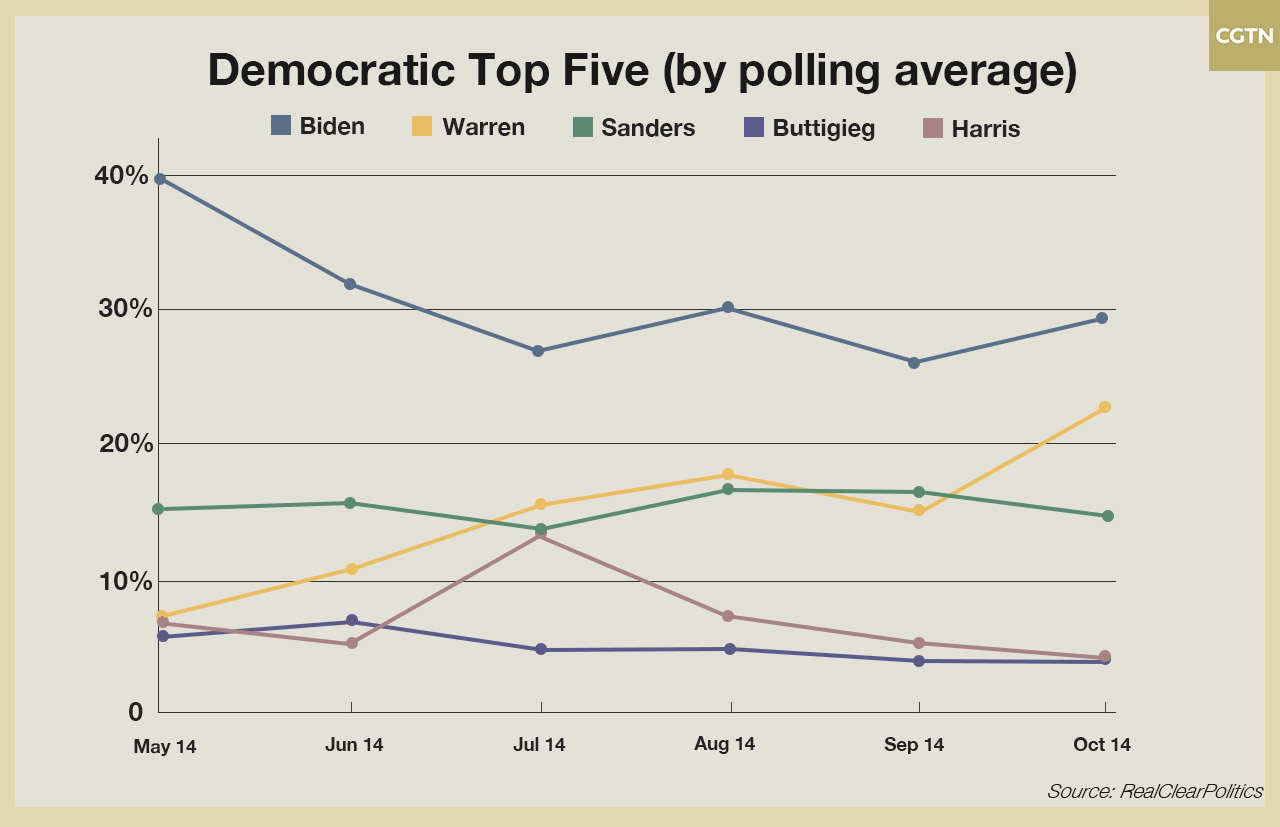
Warren backs Bernie Sanders' Medicare-for-all healthcare plan, but whereas the Vermont senator openly says taxes will rise to pay for the single payer healthcare system, she refuses to concede the point.
Buttigieg, the South Bend mayor, accused Warren of evasiveness, saying she refused to answer a yes-or-no question on whether her plan would lead to higher taxes. "Your signature, senator, is to have a plan for everything," he said, "except this."

Senator Elizabeth Warren of Massachusetts speaks during the fourth Democratic primary debate in Westerville, Ohio, October 15, 2019. /VCG Photo
Senator Elizabeth Warren of Massachusetts speaks during the fourth Democratic primary debate in Westerville, Ohio, October 15, 2019. /VCG Photo
Minnesota Senator Amy Klobuchar told Warren, "We owe it to the American people to tell them where we're going to send the invoice" and called for a public option to be added to Obamacare. "The difference between a plan and a pipedream is something you can get done," she added.
Warren's plan for a wealth tax was also criticized by Klobuchar, and Beto O'Rourke, the former Texas congressman, accused the senator of looking to be "punitive" rather than bringing people together.
2. Top three clash
Biden turned his fire on Warren toward the end of the debate saying that candidates need to explain what plans are going to cost and how they'll be delivered, accusing his rival of being "vague" on healthcare in retaliation to her dig at moderates.
"We all have good ideas. The question is who is going to be able to get it done? How can you get it done?" Biden said. "And I'm not suggesting they can't, but I'm suggesting that's what we should look at. And part of that requires you not being vague."
Third-placed Bernie Sanders hit back by listing achievements Biden may be less proud of, saying: "You got the disastrous war in Iraq done. You got a bankruptcy bill, which is hurting middle class families all over this country."

Senator Bernie Sanders of Vermont, former vice president Joe Biden, and Senator Elizabeth Warren of Massachusetts participate in the fourth Democratic primary debate in Westerville, Ohio, October 15, 2019. /VCG Photo
Senator Bernie Sanders of Vermont, former vice president Joe Biden, and Senator Elizabeth Warren of Massachusetts participate in the fourth Democratic primary debate in Westerville, Ohio, October 15, 2019. /VCG Photo
Warren also drew gasps from the audience by pointedly thanking Barack Obama – and blanking Biden – for passing the 2010 Dodd-Frank Act, which created the Consumer Financial Protection Agency, after the former vice president claimed to have secured votes for the bill.
Biden, who would turn 80 in his first term if elected, earlier said he would release his medical and tax records before the Iowa caucuses and argued that the U.S. needs someone who "on day one can command the respect of world leaders from Putin to our allies."
3. Biden pivots to Trump
The Trump impeachment and Biden's connection loomed large over the opening stages of the debate. The 76-year-old was asked twice why, if as president none of his family would conduct overseas business, it was okay for his son Hunter to sit on the board of a Ukrainian company when he was vice president.
"My son did nothing wrong, I did nothing wrong. I carried out the policy of the U.S. government in rooting out corruption in Ukraine. And that's what we should be concentrating on," Biden said. "We should be focusing on why it's so important to remove this man from office."
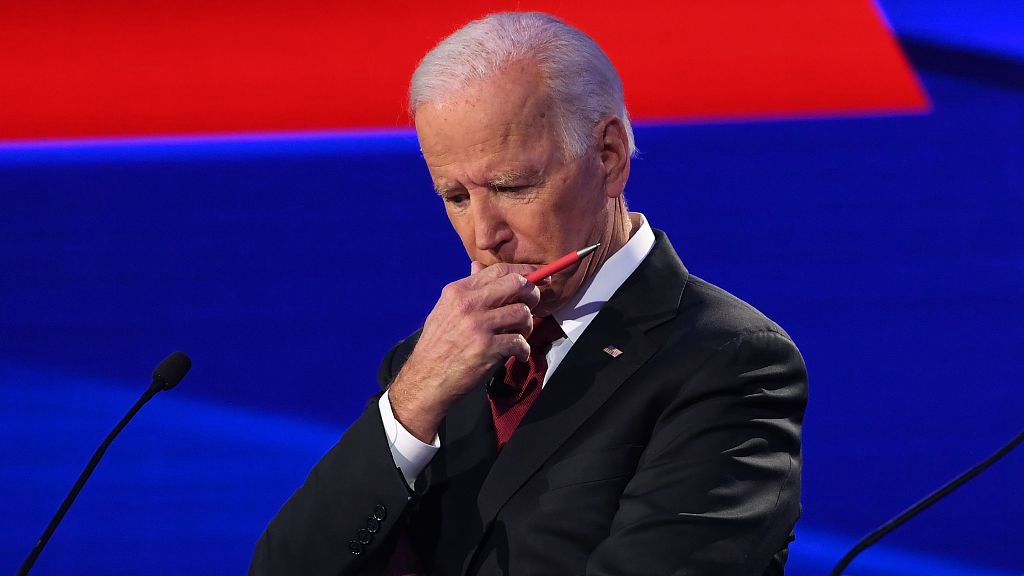
Former vice president Joe Biden at the fourth Democratic primary debate in Westerville, Ohio, October 15, 2019. /VCG Photo
Former vice president Joe Biden at the fourth Democratic primary debate in Westerville, Ohio, October 15, 2019. /VCG Photo
Biden again pivoted to U.S. President Donald Trump, arguing that the president was pushing false allegations against him because he was afraid of his candidacy. "He's going after me because he knows that if I get the nomination I will beat him like a drum."
Graphics: Can Trump's 'red wall' be shattered?
Timeline: Trump-Biden-Ukraine controversy
All the candidates backed the impeachment inquiry, with Warren saying it would send a message to future presidents about the country's democratic values.
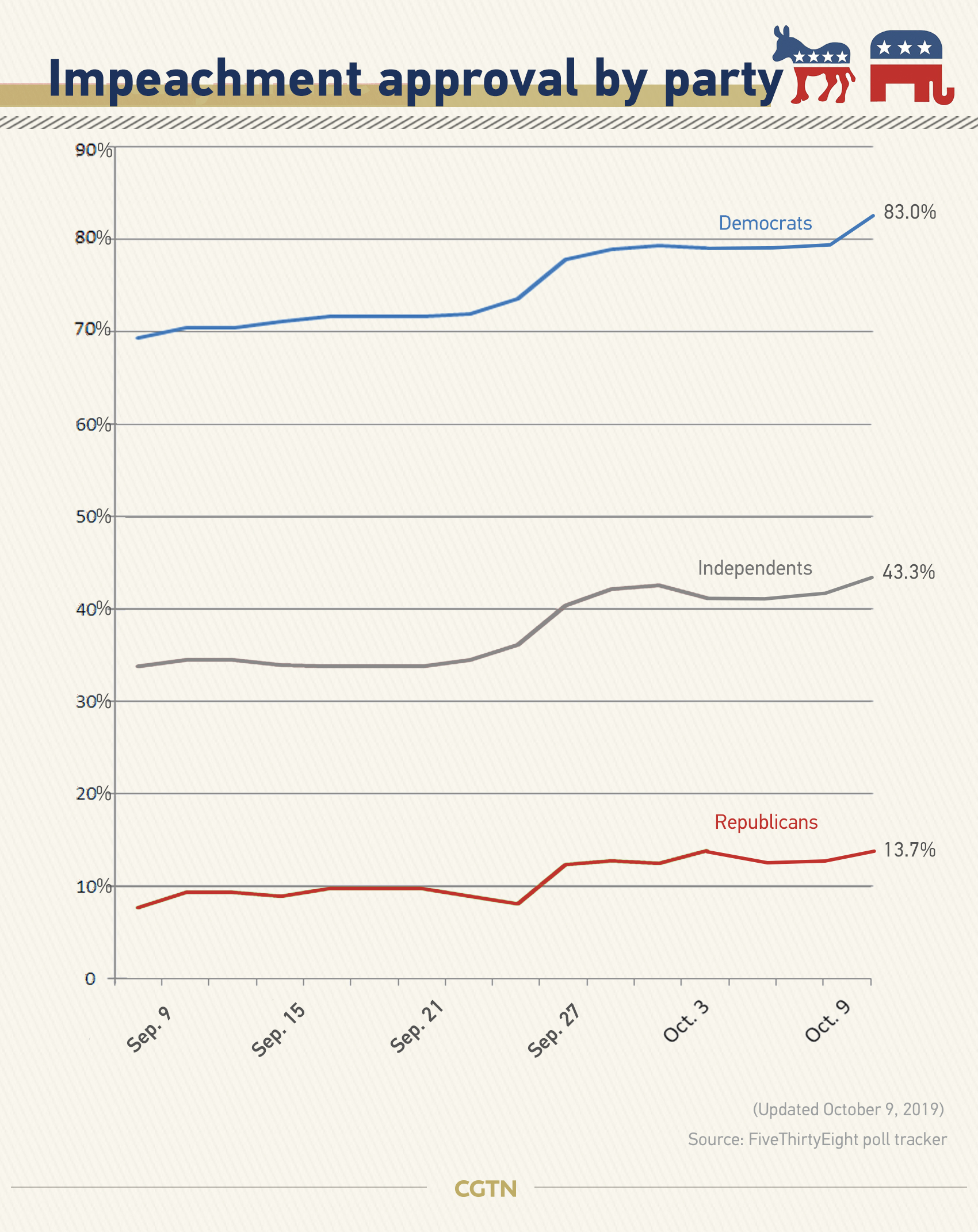
Sanders described Trump as "the most corrupt president in the history of this country" and accused the president of "enriching himself" and violating the emollients clause, designed to prevent federal officials accepting gifts from foreign countries.
California Senator Kamala Harris said Trump "has committed crimes in plain sight" and described him as "the most corrupt and unpatriotic president we have ever had."
4. Veterans clash on Syria
All candidates other than Hawaii representative Tulsi Gabbard unequivocally criticized Trump's decision to withdraw U.S. troops from northern Syria, a move which precipitated a Turkish offensive into the region.
The two military veterans on the debate stage – Buttigieg and Gabbard – clashed sharply on the issue. Gabbard described U.S. involvement in Syria as a "regime-change war," adding that "Trump has the blood of the Kurds on his hands, but so do many politicians in our country from both parties."
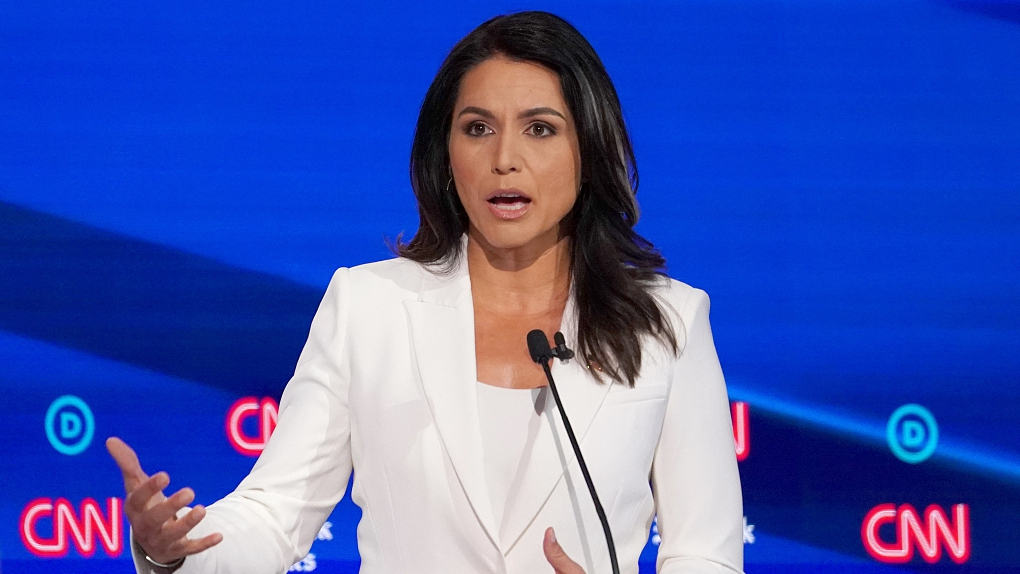
Rep. Tulsi Gabbard speaks during the fourth Democratic primary debate in Westerville, Ohio, October 15, 2019. /VCG Photo
Rep. Tulsi Gabbard speaks during the fourth Democratic primary debate in Westerville, Ohio, October 15, 2019. /VCG Photo
Buttigieg said Gabbard was "dead wrong," arguing that U.S. special forces had been all that was standing between the "beginning of a genocide and resurgence of ISIS (ISIL)" and saying the "slaughter going on in Syria is not a consequence of American presence, it a consequence of a withdrawal and a betrayal by this president of American allies and American values."
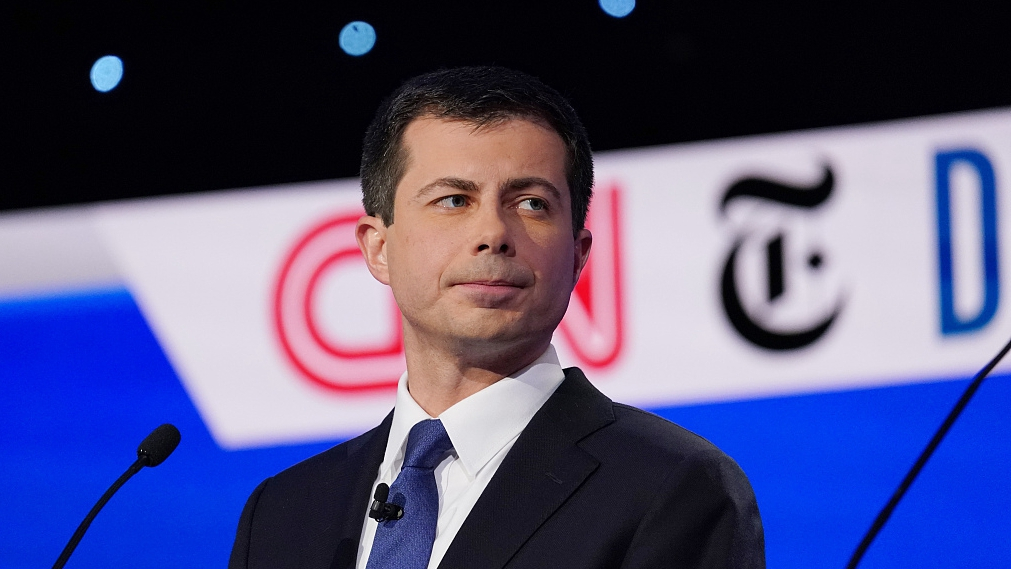
South Bend Mayor Pete Buttigieg listens during the fourth Democratic primary debate in Westerville, Ohio, October 15, 2019. /VCG Photo
South Bend Mayor Pete Buttigieg listens during the fourth Democratic primary debate in Westerville, Ohio, October 15, 2019. /VCG Photo
Biden described Trump's decision to withdraw U.S. troops as the "most shameful thing any president has done in modern history" and said he was an "erratic, crazy president who knows not a damn thing about foreign policy."
Warren added "I think we should get out of the Middle East, but we have to do it in the right way" and said Trump "sucked up to dictators, made impulsive decisions, enriched himself at the expense of the U.S."
5. Buttigieg comes out swinging
Buttigieg has struggled to gain traction in the national polls over recent months, despite being one of the leading fundraisers and steadily rising in Iowa, but in Tuesday's debate aggressively pitched himself as an alternative to Biden in the moderate lane.
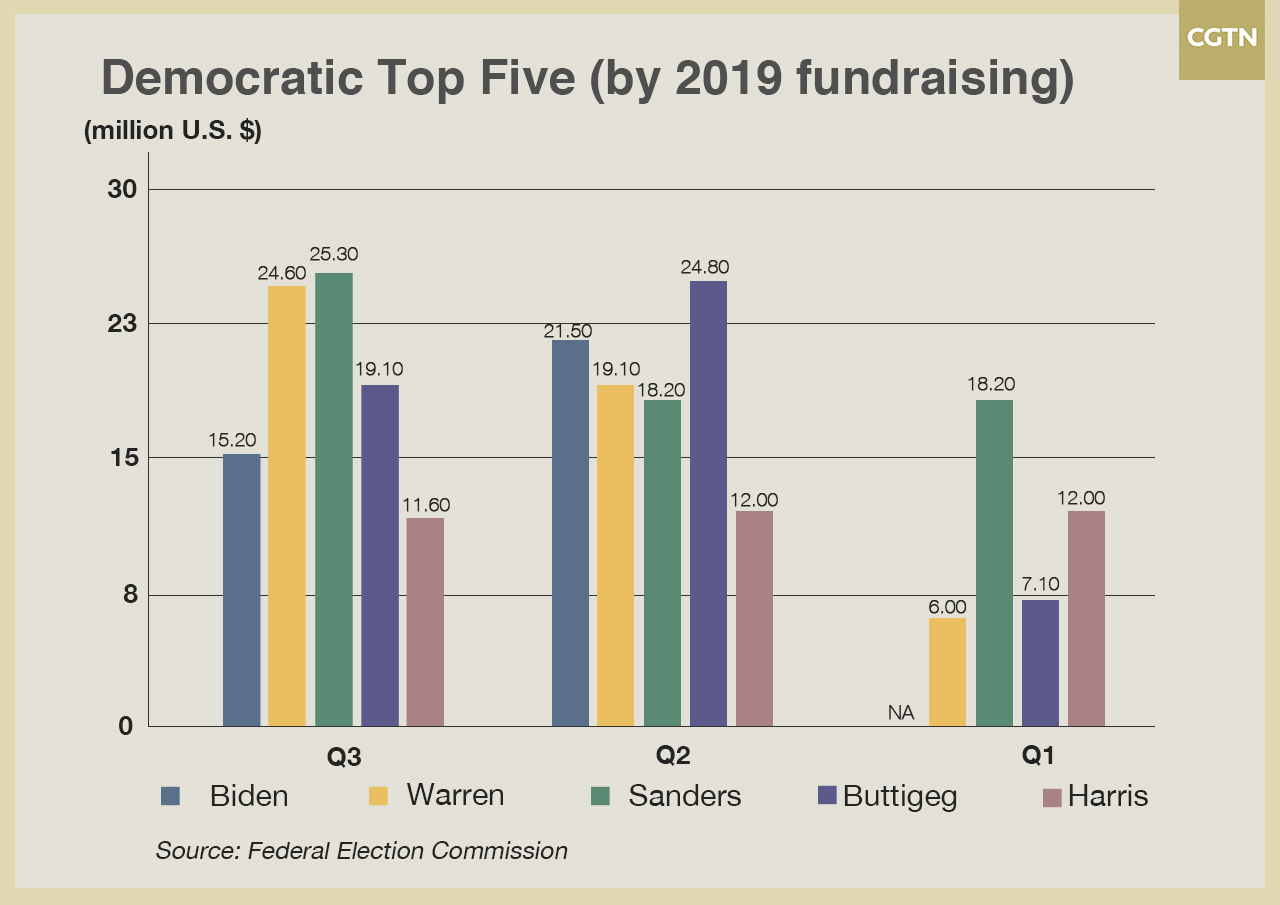
The South Bend mayor took a far more assertive posture than in previous debates, directly challenging Warren on healthcare, Gabbard on foreign policy and O'Rourke on gun rights.
Both Buttigieg and Klobuchar, who also had a strong night, criticized extreme proposals and argued that the U.S. was close to big steps forward on gun control and healthcare – but progress was jeopardized by the positions of O'Rourke, who wants a mandatory buyback of assault weapons, and Warren, who wants a single payer healthcare system.